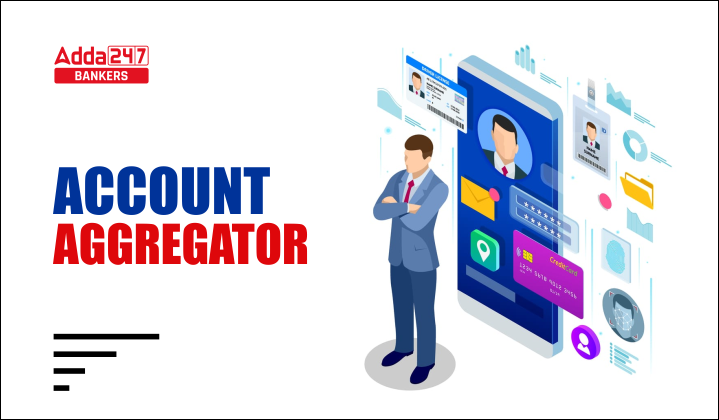Recent in news:
The Reserve Bank of India (RBI) has brought the goods and services tax network (GSTN) under the ambit of the account aggregator (AA) framework as a financial information provider (FIP).
Fintech firm Cygnet has received in-principle approval from the Reserve Bank of India (RBI) to operate as a non-banking financial company (NBFC) account aggregator.
The Securities and Exchange Board of India recently issued an important but expected circular enabling SEBI-regulated entities such as depositories and AMCs through their Register and Transfer Agents to take part in the account aggregators’ framework as financial information providers (FIPs).
Finance Minister Nirmala Sitharaman instructed all the Public Sector Banks (PSBs) to onboard on account aggregator system by end of July.
Union Bank of India became the first public sector bank to go live on the Account Aggregator (AA) ecosystem.
Agya Technologies, owned by application programming interface (API)-based infrastructure company Setu, received an in-principle nod from the Reserve Bank of India (RBI) to operate as an account aggregator (AA)
1)What is an Account Aggregator?
An Account Aggregator (AA) is a type of RBI regulated entity (with an NBFC-AA license) that helps an individual securely and digitally access and share information from one financial institution they have an account with to any other regulated financial institution in the AA network. Data cannot be shared without the consent of the individual.
2)How will the new Account Aggregator network improve an average person’s financial life?
India’s financial system involves many hassles for consumers today — sharing physical signed and scanned copies of bank statements, running around to notarise or stamp documents, or having to share your personal username and password to give your financial history to a third party. The Account Aggregator network would replace all these with a simple, mobile-based, simple, and safe digital data access & sharing process. This will create opportunities for new kinds of services — eg new types of loans. The individual’s bank just needs to join the Account Aggregator network.
3) What kind of data can be shared?
Today, banking transaction data is available to be shared (for example, bank statements from a current or savings account) across the banks that have gone live on the network.
Gradually the AA framework will make all financial data available for sharing, including tax data, pensions data, securities data (mutual funds and brokerage), and insurance data will be available to consumers. It will also expand beyond the financial sector to allow healthcare and telecom data to be accessible to the individual via AA.
4) Can AAs view or ‘aggregate’ personal data? Is the data sharing secure?
Account Aggregators cannot see the data; they merely take it from one financial institution to another based on an individual’s direction and consent. Contrary to the name, they cannot ‘aggregate’ your data. AAs are not like technology companies which aggregate your data and create detailed profiles of you.
The data AAs share is encrypted by the sender and can be decrypted only by the recipient. The end to end encryption and use of technology like the ‘digital signature’ makes the process much more secure than sharing paper documents.
5) If a consumer has shared my data once with an institution, for how long can they use it?
The exact time period for which the recipient institution will have access will be shown to the consumer at the time of consent for data sharing.
6) Does a customer need to register with every AA?
No, a customer can register with any AA to access data from any bank on the network.
7) Does a customer need to pay the AA for using this facility?
This will depend on the AA. Some AAs may be free because they are charging a service fee to financial institutions. Some may charge a small user fee.
8) What new services can a customer access if their bank has joined the AA network of data sharing?
The two key services that will be improved for an individual is access to loans and access to money management. If a customer wants to get a small business or personal loan today, there are many documents that need to be shared with the lender. This is a cumbersome and manual process today, which affects the time taken to procure the loan and access to a loan. Similarly, money management is difficult today because data is stored in many different locations and cannot be brought together easily for analysis.
Through Account Aggregator, a company can access tamper-proof secure data quickly and cheaply, and fast track the loan evaluation process so that a customer can get a loan. Also, a customer may be able to access a loan without physical collateral, by sharing trusted information on a future invoice or cash flow directly from a government system like GST or GeM.
Other posts
- Recent Appointments in India 2022: List of Important Appointments
- Recent Books and Authors in India 2022: List of Important Books and Authors
- Recent Awards and Recognitions in India 2022: List of Important Awards
- Recent Summits and Conferences 2022: List of Summits and Conference




 GA Capsule for SBI Clerk Mains 2025, Dow...
GA Capsule for SBI Clerk Mains 2025, Dow...
 The Hindu Review October 2022: Download ...
The Hindu Review October 2022: Download ...
 IB ACIO 2025 Notification PDF Out for 37...
IB ACIO 2025 Notification PDF Out for 37...


